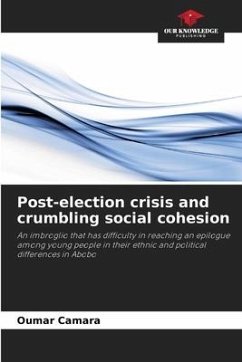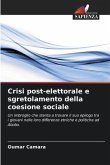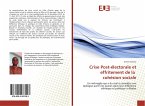The reconstruction of the social fabric in Côte d'Ivoire, which is a guarantee of reconciliation and cohesion between the country's sons and daughters, is struggling to take hold after the post-electoral crisis of December 4, 2010 to April 11, 2011. And this, despite the efforts of the current government, national and international organizations and the political class. The objective of this study is to analyze the factors that contribute to the establishment of a permanent cohesion among the youth in their ethnic and political differences in Côte d'Ivoire in general, and in particular in the villages of the Ebrié natives of Abidjan (Abobo-Baoulé and Anonkoua Kouté). The results of the study focus on the levels of social cohesion erosion, i.e., the mechanisms of rejection of social cohesion projects, the actors that influence the adherence of social actors to social cohesion projects, and the levels of failure of policies for rebuilding the social fabric. This book is a guide forpost-conflict reconstruction policies.








